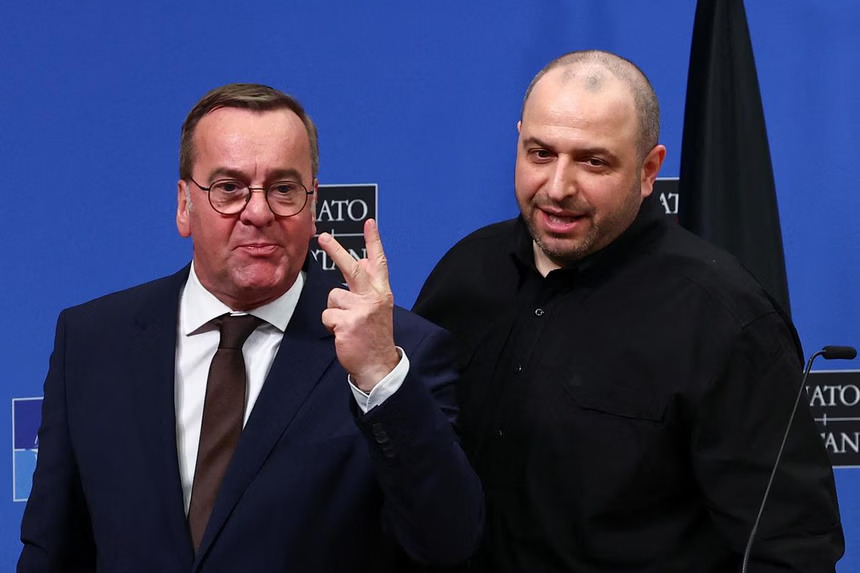
Germany and the UK reaffirmed their commitment to Ukraine’s defense on April 11, sending a strong message to Russia that Western military support will endure, even as the US begins
diplomatic engagement with Moscow.
For the first time, Germany and Britain co-chaired a meeting of the Ukraine Defence Contact Group—also known as the Ramstein group—comprising around 50 countries backing Ukraine with military aid. The move comes after the United States, under the Trump administration, stepped back from its leadership role.
German Defence Minister Boris Pistorius, speaking at NATO headquarters in Brussels, said there were no signs that Russian President Vladimir Putin was ready for peace.
“Given Russia’s ongoing aggression, we must concede that peace in Ukraine appears to be out of reach in the immediate future,” Pistorius said.
As the meeting took place, Trump’s special envoy, Steve Witkoff, arrived in Russia for what are expected to be talks with President Putin. The Trump administration has cast doubt on future US support for Ukraine, pushing instead for a ceasefire and a broader reset in US-Russia relations.
Despite this shift, Pistorius and British Defence Secretary John Healey emphasized that Ukraine can continue to rely on European backing.
“We will ensure that Ukraine continues to benefit from our joint military support. Russia needs to understand that Ukraine is able to go on fighting, and we will support it,” said Pistorius.
Healey echoed that message: “Now is the critical moment in that war... We stand with Ukraine in the fight, and we will stand with Ukraine in peace.”
Although US Defense Secretary Pete Hegseth only joined the meeting virtually, Pistorius downplayed concerns, attributing it to scheduling issues. However, he acknowledged uncertainty over the future extent of US involvement.
Ukrainian President Volodymyr Zelensky also addressed the group via video link, as European allies continue efforts to keep momentum behind the Ramstein format and encourage continued arms deliveries.
Germany pledged four IRIS-T air defense systems and 300 missiles, while Britain and Norway jointly announced funding for radar systems, anti-tank mines, and hundreds of thousands of drones. PHOTO: REUTERS







































